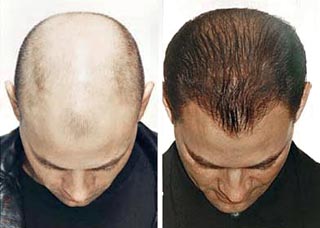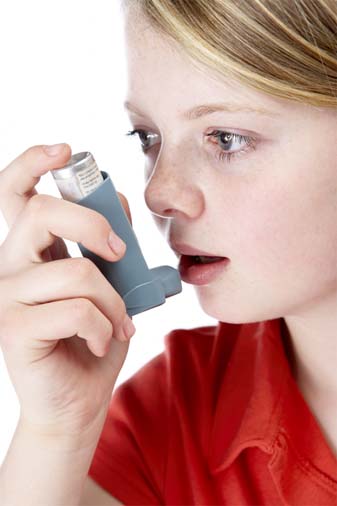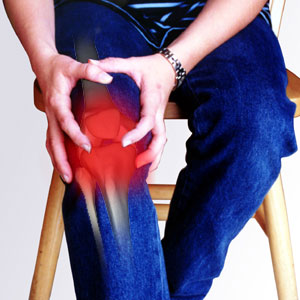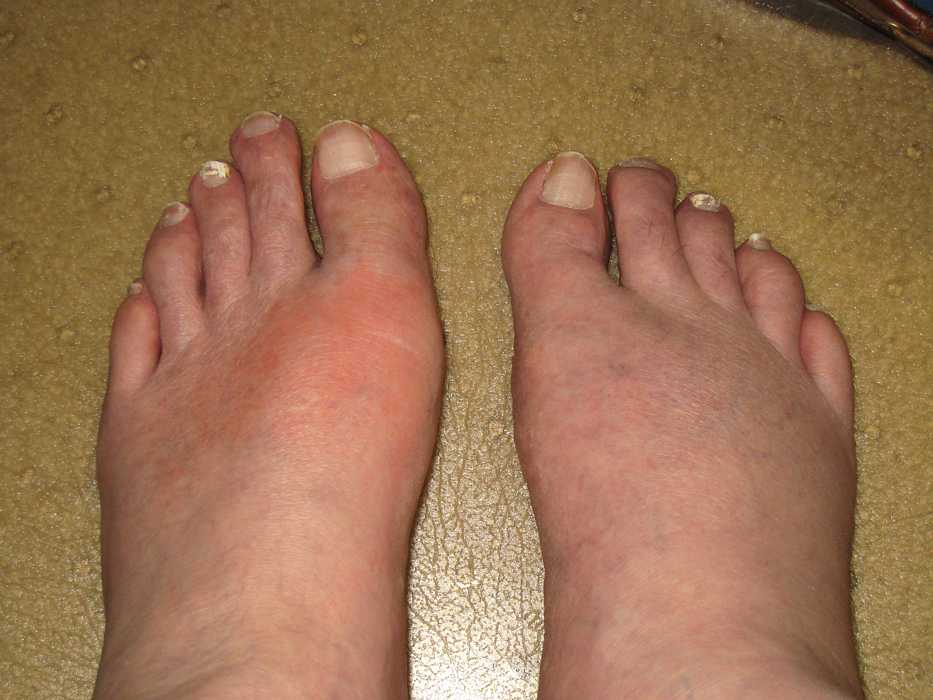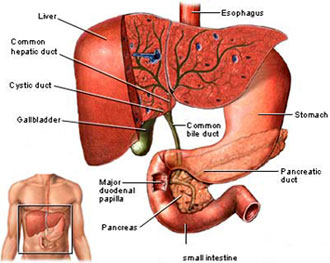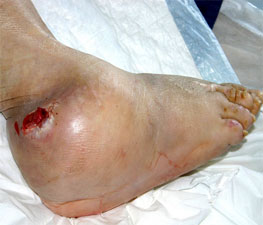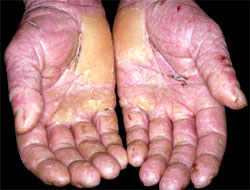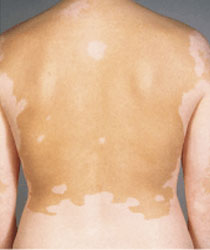Psoriasis
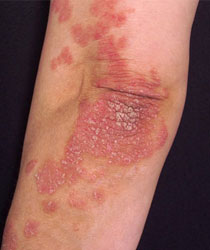
Psoriasis
Psoriasis is a persistent, long-lasting (chronic) disease. You may have periods when your psoriasis symptoms improve or go into remission alternating with times your psoriasis worsens.
For some people, psoriasis is just a nuisance. For others, it\\\'s disabling, especially when associated with arthritis. No cure exists, but psoriasis treatments may offer significant relief. Lifestyle measures, such as using a nonprescription cortisone cream and exposing your skin to small amounts of natural sunlight, can improve your psoriasis symptoms.
Symptoms of Psoriasis?
Psoriasis signs and symptoms can vary from person to person but may include one or more of the following:
- Red patches of skin covered with silvery scales
- Small scaling spots (commonly seen in children)
- Dry, cracked skin that may bleed
- Itching, burning or soreness
- Thickened, pitted or ridged nails
- Swollen and stiff joints
Psoriasis patches can range from a few spots of dandruff-like scaling to major eruptions that cover large areas. Mild cases of psoriasis may be a nuisance. But more severe cases can be painful, disfiguring and disabling.
Most types of psoriasis go through cycles, flaring for a few weeks or months, then subsiding for a time or even going into complete remission. In most cases, however, the disease eventually returns. What are the
causes of Psoriasis?
The cause of psoriasis is related to the immune system, and more specifically, a type of white blood cell called a T lymphocyte or T cell. Normally, T cells travel throughout the body to detect and fight off foreign substances, such as viruses or bacteria. If you have psoriasis, however, the T cells attack healthy skin cells by mistake as if to heal a wound or to fight an infection.
Overactive T cells trigger other immune responses including dilation of blood vessels in the skin around the plaques and an increase in other white blood cells that can enter the epidermis. These changes result in an increased production of both healthy skin cells and more T cells and other white blood cells. What results is an ongoing cycle in which new skin cells move to the outermost layer of skin too quickly — in days rather than weeks. Dead skin and white blood cells can\\\'t slough off quickly enough and build up in thick, scaly patches on the skin\\\'s surface. This usually doesn\\\'t stop unless treatment interrupts the cycle.
Just what causes T cells to malfunction in people with psoriasis isn\\\'t entirely clear, although researchers think genetic and environmental factors both play a role.
